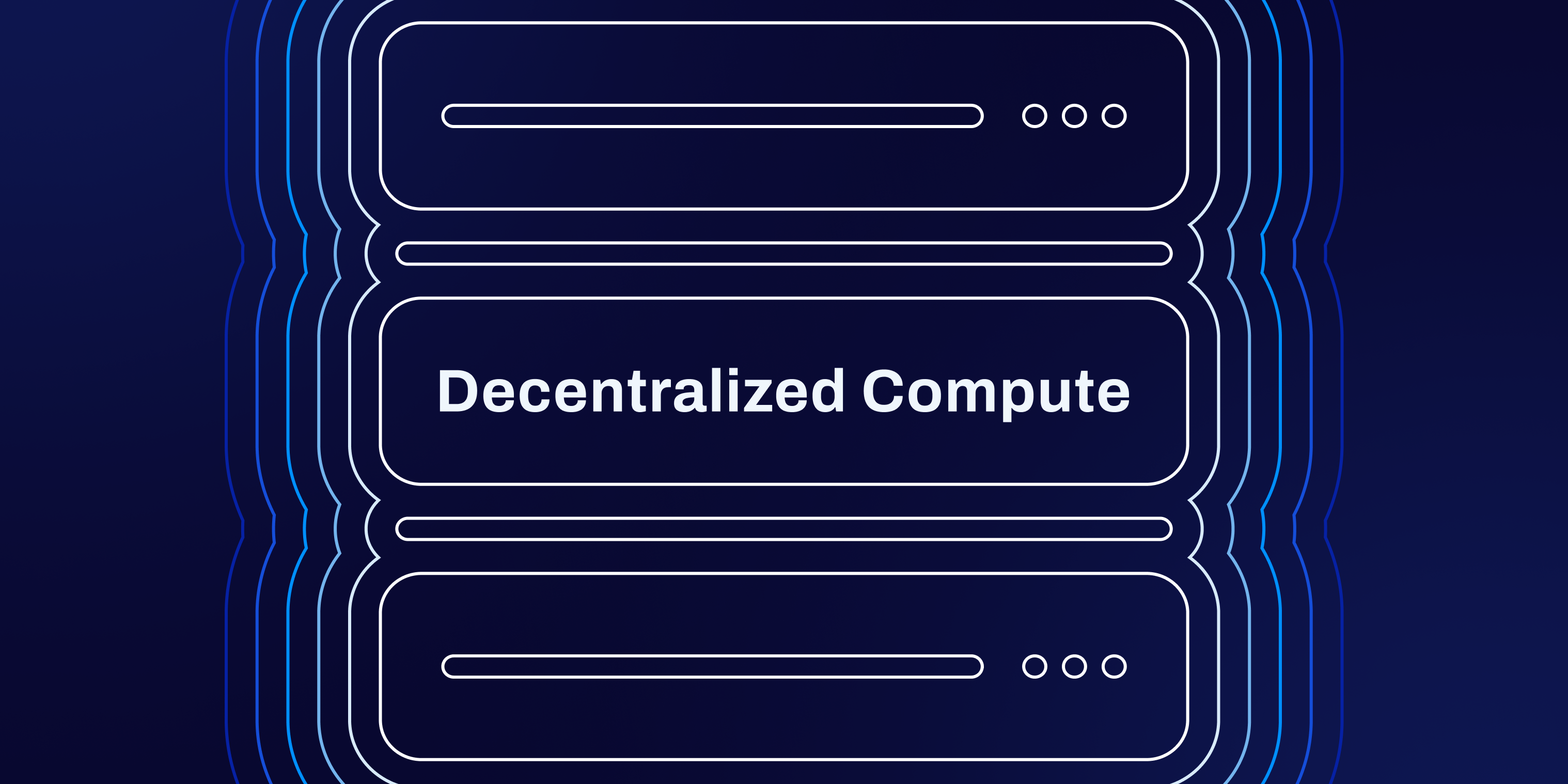In today's digital age, data is the lifeblood of nearly every industry. The demand for computing resources is skyrocketing. And the explosive amounts of data produced by artificial intelligence is poised to drive demand for decentralized data storage even higher.
Data has "gravity," which means that moving large quantities of data is slow and expensive. Traditional centralized cloud computing models present significant challenges in terms of scalability, security, and resilience. Enter decentralized compute, a solution to these problems and a new approach that promises to transform the way we harness computational power.
What is Decentralized Compute?
Decentralized compute is a distributed computing model that leverages the collective resources of a vast network of decentralized nodes, rather than relying on a centralized infrastructure controlled by a single entity. This approach democratizes access to computing power, enabling individuals and organizations to tap into a shared pool of resources without being dependent on a single provider.
Why Decentralized Compute Matters
The significance of decentralized compute lies in its ability to address the inherent limitations of centralized systems:
- Scalability: By harnessing the collective resources of a global network, decentralized compute offers virtually unlimited scalability, allowing for the processing of even the most computationally intensive tasks.
- Resilience: With no single point of failure, decentralized compute networks are inherently more resilient, ensuring continuity of operations even in the face of disruptions or outages.
- Security: Decentralized architectures are less susceptible to targeted attacks, as data and computations are distributed across a vast network, making it harder for malicious actors to compromise the system.
Filecoin: Enabling Decentralized Compute
The Filecoin network is the leading protocol for decentralized storage and is at the forefront of enabling decentralized compute. Today, more than 2,800 storage provider systems globally contribute more than 7 exbibytes of raw storage capacity to the network – that’s enough space to hold 15 million copies of the datasets that trained Chat GPT 3.5!
Filecoin’s robust and distributed infrastructure provides a foundation for secure and efficient data storage, laying the groundwork for decentralized compute capabilities. The network’s decentralized storage ecosystem not only ensures data redundancy and availability but also offers a platform for executing computations directly on the stored data.
Filecoin's design requires storage providers to have compute hardware collocated near the hard drives – making it an ideal complement for compute networks looking to both grow their hardware footprint and leverage affordable storage alongside the data they generate. This opens up a world of possibilities, enabling a range of applications, from data analytics and machine learning to scientific simulations and rendering tasks.
More, the decentralized nature of the Filecoin network lets developers maximize their choices when building computational solutions. Decentralized compute on Filecoin gives builders access to machines spread across geographies and allows them to comply with local governance structures and run at the cheapest rates possible.
The Filecoin Opportunity
Several teams across the Filecoin ecosystem are already leveraging the network for decentralized compute. The Filecoin Virtual Machine (FVM) unlocks the ability to broker computational resources, incentivize compute execution, distribute workloads across available storage providers, and prove the validity of the computation's result.
Teams in the Filecoin ecosystem working to solve today’s computing challenges include:
- Bacalhau: A platform for fast, cost-efficient, and secure computation by running jobs where the data is generated and stored. It supports large-scale parallel compute of Filecoin data.
- Web3Mine: An innovation lab that helps people collectively coordinate hardware and capital to build a more open and resilient internet infrastructure for everyone.
- Fluence: A decentralized, serverless computing platform where developers can build, host, and deploy peer-to-peer applications to a network of compute providers. Providers can range from professional data centers to home computers.
- Io.net: Utilizing Filecoin hardware, io.net is a state-of-the-art decentralized computing network that allows machine learning engineers to access scalable distributed clusters at a fraction of the cost of comparable centralized services.
The Future of Decentralized Compute
As the demand for computing power continues to grow, decentralized compute presents a compelling alternative to traditional centralized models. By harnessing the power of global networks and leveraging the capabilities of tools like Filecoin, we can unlock new frontiers of innovation and foster a more open, resilient, and democratized computing ecosystem.

